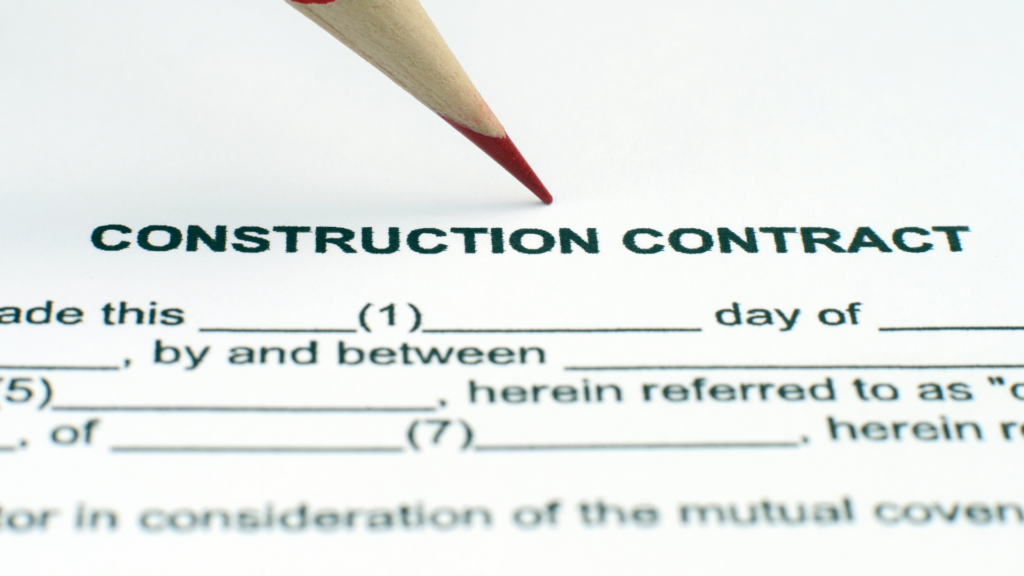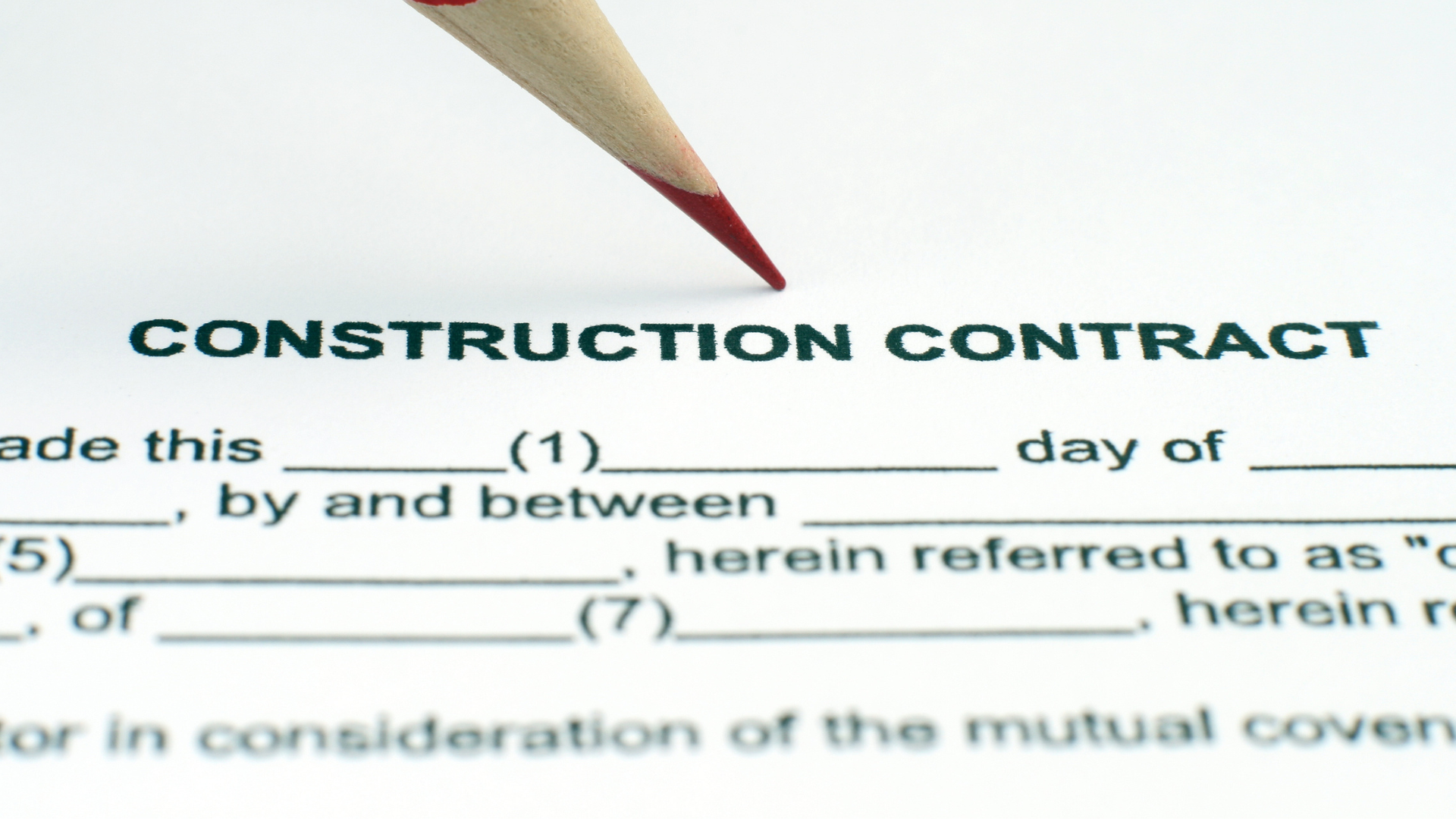In Short
Advice
A successful construction project requires a solid foundation, not just in terms of bricks and mortar but also in the legal and contractual aspects that underpin it. Whether you're a homeowner embarking on a renovation or a seasoned developer overseeing a large-scale construction endeavor, understanding the intricacies of construction contracts is paramount. In this article, we'll explore key factors that can make or break your project's success, from defining clear project scope and timelines to addressing payment terms and dispute resolution mechanisms. Join us as we unravel the secrets of effective contract management and equip you with the necessary insights and resources to confidently navigate the world of construction. Let's lay the groundwork for your construction project's triumph!

What is a Construction Contract?

In the world of construction, a crucial document known as the Construction Contract, or Building Contract, plays a pivotal role. This written agreement establishes a clear understanding between the Employer, who is typically the homeowner, and the Contractor, the skilled professional responsible for bringing the construction project to life. The contract outlines important aspects such as payment terms and the specific scope of work to be undertaken, ensuring that both parties are on the same page. With the Contractor's commitment to executing the project as per the agreed-upon details and within the specified timeframe, and the Employer's obligation to provide compensation accordingly, the Construction Contract serves as the cornerstone for a successful construction endeavor.
Details that should be included in a construction contract
- Contract Date & Place: To specify when the Construction Contract takes effect and its duration in years.
- Personal Information of the contracting parties, including the Employer (homeowner) and the Contractor (construction contractor), such as their names, addresses, organizational affiliations, and any other relevant information that can verify their identities and be used for authentication.
- Scope and Nature of Work Responsibilities: The Employer agrees to clearly specify in the contract the type of house construction they are hiring the Contractor for, including details such as the architectural design, specific features of the house, and the construction site location.
- Price and Payment Details:
- Total Contract Amount: The agreed-upon lump sum or total payment for the entire contract.
- Advance Payment: The percentage or amount to be paid by the Employer before the commencement of the construction work.
- Milestone Payments: The division of the project into multiple milestones, specifying the details of each milestone and the corresponding payment percentage or amount.
- Payment Installments: The payment schedule for each milestone, indicating the percentage or amount to be paid for each installment.
- Contract Duration: The period covered by the contract, starting from the commencement of construction work until its completion. The estimated duration of the construction project in terms of months should also be specified.
- Roles and Responsibilities of the Employer (Homeowner): Clear and detailed delineation of the duties and obligations of the Employer should be specified in the contract.
- Roles and Responsibilities of the Contractor (Construction Contractor): The contract should clearly outline the specific duties and responsibilities of the Contractor in the construction project.
- Construction Tools, Materials, and Equipment: The contract should ensure that the construction tools, materials, and equipment used are of high quality and suitable for the nature of the work. It is advisable to include a document appendix specifying a detailed itemized list for reference and verification purposes.
- Warranty of Workmanship: The contract should include provisions for a warranty period after the completion and handover of the work. The duration of the warranty period may vary depending on the type of work and negotiation, typically ranging from 1 to 5 years. In the event of any damage or issues occurring within the warranty period, not related to natural disasters, such as leaks or structural cracks, the Contractor agrees to rectify and restore the work to its original condition.
- Contract Termination and Remedies: Clear provisions regarding contract termination and the right to claim damages should be explicitly stated. If either party breaches the contract and causes damages, it is essential to specify the detailed conditions and terms in written form, notifying the party at fault of their responsibilities and obligations to compensate for any resulting losses.
- Signatures, including:
- Employer (Homeowner)
- Contractor (Construction Contractor)
- Witness 1
- Witness 2
Problems that could arise between the employer and the contractor

Even with successful negotiations and signed contracts in place, the following unforeseen issues could still arise amidst the construction:
- Delayed construction resulting from uncontrollable factors such as the weather.
- Unauthorized Withdrawal of Funds or Misappropriation: Requesting excessive payments beyond the agreed-upon milestones, delaying work, abandoning the project, or ultimately fleeing.
- Disputes over Material or Plan Changes: Controversies arising from alterations to construction materials or modifications to the originally specified house plans.
- Dissatisfaction with Workmanship: Subpar quality or lack of expertise on the part of the contractor resulting in unsatisfactory outcomes.
- Replacement of Skilled Construction Team: Initially employing a skilled and efficient team that delivers satisfactory results, only to later replace them with less experienced or reduced staff, leading to lower quality work and project delays.
- Budget Overrun: The final construction budget exceeds the initially planned costs due to additional modifications or deviations from the original blueprint.
Note that #2-6 are issues that could stem from the contractor's lack of responsibility, such as their failure to show up on site or delays in their work. In this case, the contractor should be held fully accountable for their actions.
What to look out for before finalizing a construction contract

- A comprehensive construction contract should clearly specify conditions and details to prevent potential risks associated with contracting unreliable and unprofessional contractors, ensuring our best interests are protected upon signing the contract.
- The payment percentages for each work stage should be reasonable and based on the quantity of work, referring to the price and quantity of materials outlined in the Bill of Quantities (BOQ).
- The construction process and reasonable timelines should be clearly defined, including specific dates and deadlines for each work stage before payment is made.
- Post-construction warranty period should be established to cover any damages or defects that may occur after the project handover.
- Clear provisions regarding contract termination rights should be included, specifying actions to be taken in case the contractor fails to fulfill their responsibilities as outlined in the contract.
Read More:
Conclusion
In conclusion, a well-crafted construction contract is the foundation of a successful and stress-free project building. By addressing key considerations such as clear terms and conditions, appropriate payment structures, realistic timelines, post-construction warranties, and termination rights, we can embark on our construction journey with confidence. Remember, investing time and effort into creating a comprehensive contract is an investment in protecting our interests and ensuring a smooth and satisfactory construction experience. So let's build with confidence, knowing that our project is backed by a solid agreement that sets the stage for success.
Find your ideal property, available for sale or rent in the best prices possible, or list your property for sale or rent here. Alternatively, if you have any further questions, please get in touch with us:
FAQs
Lorem ipsum dolor sit amet, consectetur adipiscing elit. Suspendisse varius enim in eros elementum tristique.
Explore More Topics
Free real estate resources and tips on how to capitalise



